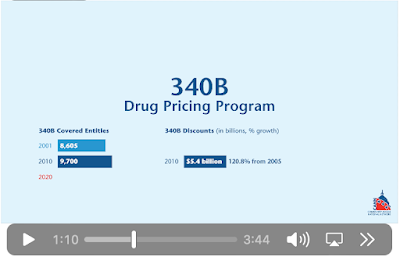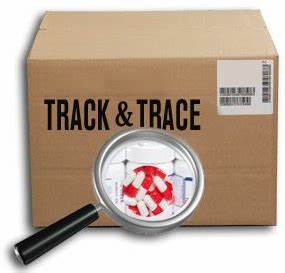By: Brandon M. Macsata, CEO, ADAP Advocacy Association
The ADAP Advocacy Association hosted its "Fireside Chat" retreat in Chicago, Illinois among key stakeholder groups to discuss pertinent public health issues facing patients in the United States. The Fireside Chat took place on Thursday, September 29th, and Friday, September 30th. Counterfeit Drugs, 340B Drug Pricing Program, and Covid-19 were evaluated and discussed by the 22 diverse stakeholders.
 |
| Photo Source: Getty Images |
The Fireside Chat included moderated white-board style discussion sessions on the following issues:
- Counterfeit Medicines: What Can We Do to Protect the US Drug Supply Chain from Nefarious Activities — moderated by Shabbir Imber Safdar, Executive Director, Partnership for Safe Medicines (PSM)
- 340B Drug Discount Program: The Issues Spurring Discussion, Stakeholder Stances, and Possible Resolutions — moderated by Brandon M. Macsata, CEO, ADAP Advocacy Association
- Covid-19: What is its Impact on HIV, Viral Hepatitis, Sexually Transmitted Infections (STIs), and Substance Use Disorder — moderated by Jen Laws, President & CEO, Community Access National Network (CANN) & Board Member, ADAP Advocacy Association
The discussion sessions were designed to capture key observations, suggestions, and thoughts about how best to address the challenges being discussed at the Fireside Chat. The following represents the attendees:
- Tez Anderson, Executive Director, Let’s Kick ASS – AIDS Survivor Syndrome
- Jeff Berry, Executive Director, The Reunion Project
- Tori Cooper, Director of Community Engagement, Human Rights Campaign
- Jeffrey S. Crowley, Distinguished Scholar & Program Director at the Infectious Disease Initiatives, O'Neill Institute for National and Global Health Law, Georgetown Law
- Erin Darling, Associate Vice-President and Counsel, Federal Policy, Merck
- Heather Eagleton, Director, Government Relations (Midwest), ViiV Healthcare
- Karen King, fierce Patient Advocate
- Lisa Johnson-Lett, Peer Support Specialist, AIDS Alabama
- Jen Laws, President & CEO, Community Access National Network
- Darnell Lewis, Patient Advocate
- Brandon M. Macsata, CEO, ADAP Advocacy Association
- Mike Maginn, HIV Prevention Director, Illinois Public Health Association
- Aisha McKenzie, Consultant – Event Producer and Administrative Project Management
- Judith Montenegro, Program Director, Latino Commission on AIDS
- Murray Penner, Executive Director, North America, Prevention Access Campaign
- Glen Pietrandoni, Chief Advocacy Officer, Avita Pharmacy
- Kalvin Pugh, Sr. Manager, Community Engagement at International Association of Providers of AIDS Care
- Shabbir Imber Safdar, Executive Director, Partnership for Safe Medicines (PSM)
- Larry Scott-Walker, Executive Director, THRIVE Support Services
- Sara Stevens, Head, U.S. Issue Advocacy, Novartis
- Scott Suckow, Senior Consultant, Perry Communications Group
- Varela, Milani, Patient Advocate, Getting to Zero-Illinois Community Advisory Board
The Covid-19 pandemic is still ongoing. Covid-19 has killed at least 1,051,277 people and infected about 95.4 million in the United States since January 2020, according to data by Johns Hopkins University (CNN, 2022).
With that in mind, the ADAP Advocacy Association implemented strong Covid-19 safety protocols for the Fireside Chat, which included proof of vaccination/booster, robust self-administered testing (prior to travel, upon arrival, and after returning home), complimentary rapid self-test kits and hand sanitizer for each of the attendees, as well as guidelines for masks on commercial travel to the event, and optional masks during the sessions (which some attendees exercised without feeling shunned).
September 29th marked the one year anniversary of Bill Arnold's passing, so Brandon M. Macsata took a few moments to reflect on his life and his dedication to improving access to care and treatment for all patients, regardless of their ability to pay.
 |
| Bill Arnold standing at Cape Agulhas, South Africa |
The ADAP Advocacy Association is pleased to share the following brief recap of the Fireside Chat.
Counterfeit Medicines:
- Gilead Sciences v. AJC Medical Group et al.
- Gilead says counterfeiters sold $250M worth of fake HIV drugs, sues distributors
- Man Arrested for Allegedly Distributing Over $230 Million of Adulterated HIV Medication
- Janssen Alerts Counterfeit SYMTUZA® (darunavir/ cobicistat/ emtricitabine/ tenofovir alafenamide) is Being Distributed in the United States
- PSM Handout - Black Market Medications
- ALERT! FAKE HIV meds in US [video]
- ALERT! Fake HIV Drug Ring [video]
- ALERT! Dodgy Drug Websites and HIV [video]
- ALERT! Fraudsters in Court [video]
- Gilead Sciences v. AJC Medical et al.
- Gilead Sciences v. Safe Chain Solutions et al.
- USA v. Lazaro Hernandez
- PSM Handout - Black Market Cancer Drugs In the U.S. 2007–2018
- ALERT! More Fake Avastin
- ALERT! Discount Cancer Drugs?
- ALERT! Dangerous Mexican Pharmacies
- U.S. Immigration and Customs Enforcements website on Operation Stolen Promise
- Partnership For Safe Medicines Releases Anti-Counterfeit Public Service Announcement With ADAP Advocacy Association
The ADAP Advocacy Association would like to publicly acknowledge and thank Shabbir Imber Safdar for facilitating this important discussion.
340B Drug Discount Program:
There are probably fewer issues that generate such passion than the need to reform the 340B Drug Discount Program. Macsata (me) offered his perspective on clarifying the purpose and intent of the 340B program, including why reforming the program is in the best interest of the patient community. The program was a well-intended attempt to increase access to prescription drugs for low-income, uninsured patients, and in many ways it has succeeded in doing so. There is no doubt that the program has plugged the funding gaps for many Covered Entities – including Ryan White grantees, and Federally Qualified Health Centers – and that, by in large, federal grantees are not abusing the program to the extent done by hospitals.
Insufficient funding increases approved by Congress coupled with the lack of buy-in from state legislatures for additional dollars has led many federal grantees to overly rely on their 340B revenue. No matter the program's success, it is no excuse to turn a blind eye to the waste, fraud and abuse that actually serves to hamper even greater patient access, nor is it fruitful to grant a pass to federal and state legislators for failing to appropriate adequate funding for public safety-net programs.
In 2021, annual 340B-related purchases by Covered Entities totaled $43.9 billion, up from only $12.2 billion only six short years ago. Whereas hospitals accounted for most of the growth,[1] federal grantees also benefited from the lucrative revenue stream. In theory, that is good news because it would mean more patients are gaining access to prescription drugs. But in practice, providers are not required by law to apply the discounted savings to patients and there are numerous reports where "charity care" offered to patients has declined over the same six year period. Ryan White grantees, however, aren't absent from program abuse, with several attendees identifying excessive executive compensation as an example. One participant rightly and repeatedly reminded the group, “there are no requirements as to how those dollars are spent.”
In fact, a recent study concluded: "Seventy-two percent of private, nonprofit hospitals had a fair share deficit, meaning they spend less on charity care and community investment than they received in tax breaks."[2] The abuses by hospitals has resulted in a growing number of pharmaceutical manufacturers to place restrictions on their 340B discounts, which isn't necessarily a good thing especially if those restrictions are inadvertently hurting federal grantees. The ADAP Advocacy Association and the Community Access National Network (CANN), back in October 2020, issued a Dear Colleague letter to our industry partners in the pharmaceutical manufacturing space surrounding HIV therapies. The letter sought a carve-out for Ryan White grantees.
During the discussion, stakeholders kept coming back to a question one attendee asked, "Where does the patient in all of this mess?" Clearly the hospitals benefit from the program, as do federal grantees, as well as contract pharmacies and pharmacy benefit managers (PBMs). In each case, dollars can be tied directly to the program's participants measured by the revenue being reported...except for the patients. It begged the question: Is the program benefitting providers, or patients? That question became more evident because three recent studies found that consumers in the United States are burdened by $195 billion in medical debt. Yes, billion!
Generally, there was agreement that the 340B Drug Discount Program is long-overdue for an update. Diving into the specifics over what needs to be reform saw a bit more variation of opinion.
 |
| Photo Source: CANN YouTube Channel |
The following materials were shared with retreat attendees:
- CANN 340B Commission’s final report
- CANN 340B Commission’s background materials
- CANN 340B Patient Awareness Project
- 340B entities face increased challenges in a shifting regulatory and enforcement landscape
- For-Profit Pharmacy Participation in the 340B Program Berkeley Research Group
- The 340B program is at a crossroads Drug manufacturers are rejecting the program’s blanket discounts involving contract pharmacies. A flurry of litigation has ensued.
- Unpacking Past, Future Hurdles in 340B Drug Pricing
- Safety Net Hospitals and 340B
- Supreme Court sides with hospitals in ruling 340B cuts 'unlawful'
- Pursuit of profits is driving drug companies to break the 340B law
- J&J To Cut 340B Discounts
- Amgen becomes 10th drugmaker to restrict 340B discounts to safety net hospitals
- PBMs and the 340B Program
- NEW BRIEF: 340B Hospitals More Profitable, Provide Less Charity Care, Receive Unwarranted Subsidies
- Massachusetts Hospitals Pull Back on Charity Care as Revenue from Federal 340B Drug Discount Program Explodes
- Hospitals and for-profit PBMs are diverting billions in 340B savings from patients in need
Covid-19's Impact on Public Health:
Covid-19’s impact on public health programs remains constant, evidenced by a slew of recent news reports documenting area after area falling behind with respect to efforts on prevention, testing, and treatment. Jen Laws took the liberty of deviating the discussion away from policy issues in favor of assessing patient advocacy and provider services as a response. With concentration on sustainability and succession planning, participants reflected how the crisis phase of the pandemic highlighted not just the weaknesses in public health programs, but also re-emphasized the need for HIV advocacy to consider appropriate succession planning and mentorship, as much as our service organization partners need to find room in their budgets to hire enough staff to not burn out their existing staff.
Reminding the audience, Laws reflected, “Because eventually Bill Arnold dies.” The statement hit home for the room’s audience, referring to the empty seat draped in the fishing vest with the AIDS red ribbon on the lapel once worn by our Lion of HIV/AIDS advocacy. The group agreed that agencies need to plan better, and they have to be willing to make these investments now, not later.
The discussion also focused on how the Covid-19 challenges have been further complicated by the emergence of yet another public health crisis: Monkeypox. The public health infrastructure is literally at a breaking point, which isn't helped by ongoing public attacks by certain politicians seeking nothing more than soundbites.
 |
| Photo Source: MedPage Today |
The following materials were shared with retreat attendees:
- Community Access National Network - Community Roundtable Emphasizes Impacts of COVID-19 (2021)
- Community Access National Network - Community Roundtable Defines the Shape of Public Health Advocacy Amid COVID-19 (2022)
- Centers for Disease Control and Prevention - Impact of COVID-19 on STDs. Sexually Transmitted Disease Surveillance 2020
- National Association of County and City Health Officials - NACCHO Requests Protection of Public Health department Officials and Staff from Harassment, Intimidation, and Threats of Violence
- NBC News - Because of Covid, 2020 was a ‘lost year’ in the fight against HIV, report suggests
- Kaiser Health News - Strides Against HIV/AIDS Falter, especially in the South as Nation Battles COVID
- Kaiser Family Foundation - Delivering HIV Care and Prevention in the COVID Era: A National Survey of Ryan White Providers
The ADAP Advocacy Association would like to publicly acknowledge and thank Jen Laws for facilitating this important discussion.
Additional Fireside Chats are planned for 2023.
[1] Pitts, Peter J. and Robert Popovian (Fall 2022). 340B and the Warped Rhetoric of Healthcare Compassion. Food and Drug Law Institute. Retrieved online at https://www.fdli.org/2022/09/340b-and-the-warped-rhetoric-of-healthcare-compassion/


No comments:
Post a Comment